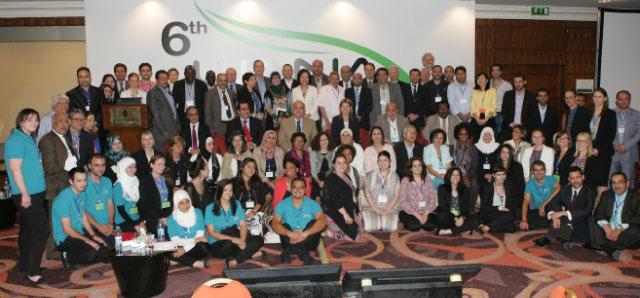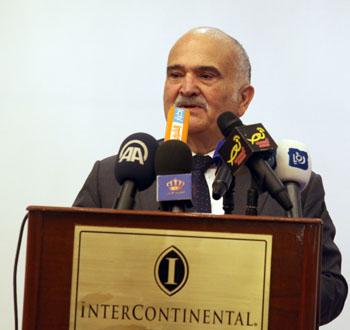You are here
WANA Forum participants call for empowering marginalised groups
By JT - Jun 14,2014 - Last updated at Jun 14,2014

AMMAN — More focus must be given to safeguarding the fundamental rights of the most marginalised segments of society, according to HRH Prince Hassan.
“We need to start listening to each other on common concerns such as water, education and healthcare. These issues resonate with all of us — not because we are Arabs or Christians or Muslims — but because we are humans,” the prince said at the conclusion of the sixth West Asia-North Africa (WANA) Forum on Thursday.
During the two-day forum, government leaders, policy officials, legal analysts and religious representatives from 17 countries came together to conceptualise and develop grass-roots solutions to enable access to legal rights for women, children, refugees and migrant workers in the region, according to a statement issued by forum organisers.
Participants discussed the discrimination faced by women due to the misinterpretation of Sharia (Islamic law) in the WANA region.
Nigerian legal expert and visiting lecturer at the Harvard Divinity School, Hauwa Ibrahim, provided insights about how women could secure access to justice through Islamic law by leveraging local traditions, the statement said.
She highlighted how groups like Boko Haram came into being in the absence of strong and accountable local governance.
Echoing her sentiments, Prince Hassan noted that “Corruption is the antonym of good governance.”
The lack of legal rights for migrant workers was also highlighted as a major issue for the WANA region, which faces high unemployment rates (22 per cent for men and 40 per cent for women).
A majority of workers are forced into the informal economy where they face unsafe working conditions and are deprived of social security, minimum wage and other basic rights, participants said.
Linda Al Kalash, director of Tamkeen for Legal Aid, said in Jordan, migrant workers are a particularly vulnerable group. Employers in the region often withhold the passports of employees, creating unsafe and exploitative conditions that have been described as modern day slavery.
“It is very common to brag that Jordan is better than other countries in the region but we must recognise that there is a gap between the law and its implementation,” the statement quoted Kalash as saying.
Earlier this year, Prince Hassan co-signed an urgent appeal with other world leaders to make access to justice for all part of the sustainable development goals.
This call has subsequently been signed by over 300 organisations and over 500 individuals.
The forum, which was focused on legal empowerment of the poor and most marginalised, was not about strengthening the police, the courts, or the judiciary, the prince said.
“In many countries, the institutions of the state are far removed from the people,” he noted.
“We should focus on empowering the most marginalised people so that they can set forth the agenda for new rights, new opportunities and new freedoms.”
Related Articles
The sixth annual West Asia – North Africa (WANA) Forum will be held in Amman on June 11-12.
Any post-2015 agenda for the Arab region, and regions across the world, must combine economic, social and environmental sustainability with human dignity as their primary focus, HRH Prince Hassan said on Wednesday.
Jordan needs to develop focused strategies that target the development of specific sectors such as agriculture and information technology, which will help the country increase its competitiveness and boost exports, a Taiwanese economist and academic said Monday.
















